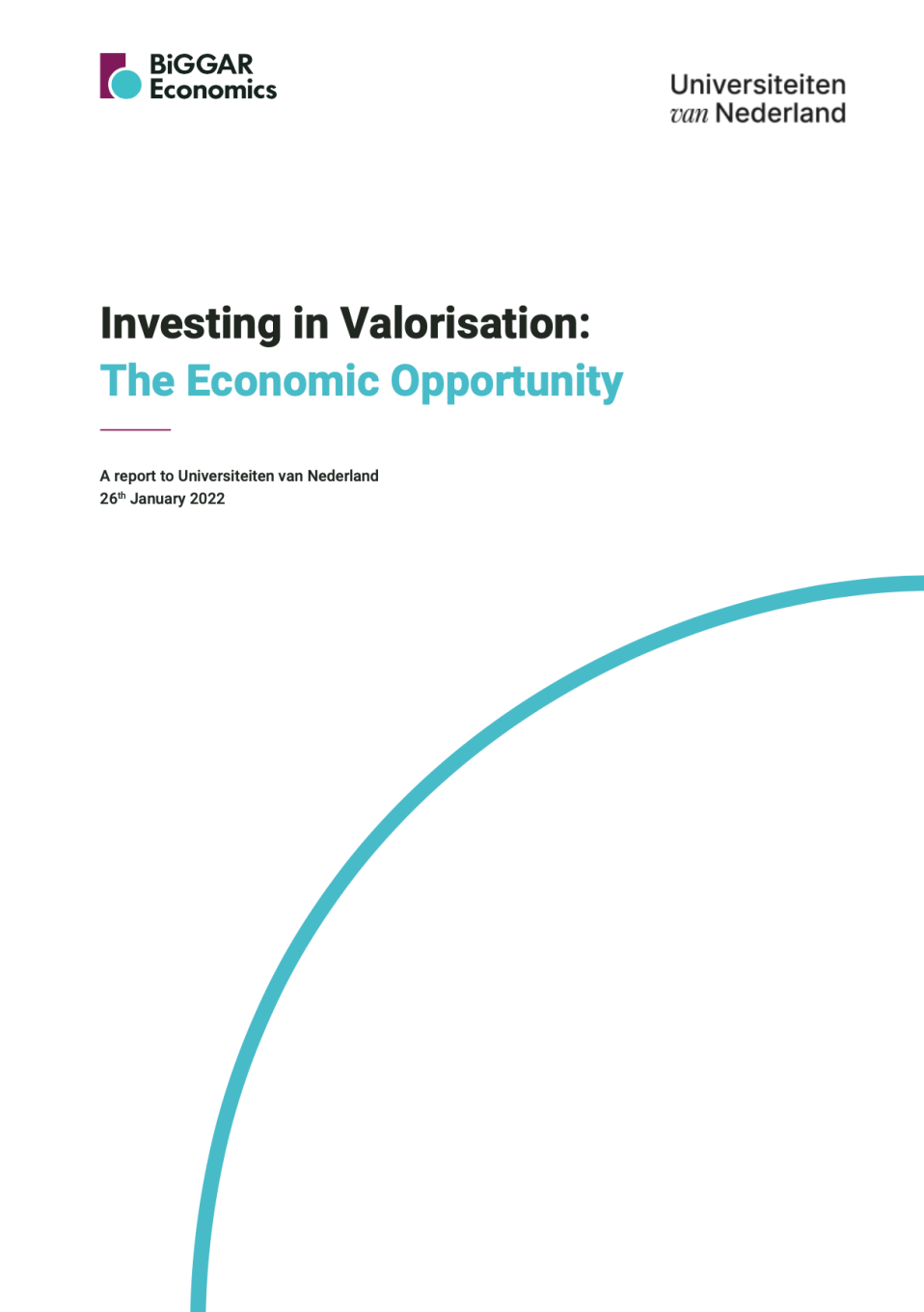The purpose of this report is to provide evidence to inform policy decisions about the role of valorisation from the Dutch universities, university medical centres, and research institutes in driving economic and social recovery in the Netherlands.
Recovery from the economic impact of Covid-19, meeting climate change targets and the aspiration to deliver a wellbeing economy means that strategic and economic environments are changing very significantly. Doing things as we’ve always done is not an option - the case for innovation has never been stronger.
It is common knowledge that innovation is a key driver of economic growth. The long-term sustainable economic growth of the Netherlands demands a renewed commitment to promoting the impact of the innovation created by our research organisations. This is where valorisation plays an important role, because it drives the benefits of teaching and academic research into society.
The contribution of universities, UMCs and research institutes to the economy and society start with producing educated graduates adding to the country’s stock of skilled human capital, essential to economic growth in today’s advanced workplaces. Their teaching role is not distinct from their role in supporting innovation impacts, it is an essential component and teaching benefits spill over into local, regional and national economies. This happens when valorisation teams: actively engage with employers; promote entrepreneurial activity within curricula; promote interdisciplinary and project-based learning; support teaching innovation; develop digital skills; encourage and support student/graduate start-up companies; and more. All of this requires an integrated approach to valorisation and a sustainable valorisation service that plays a role right across each individual institution’s ecosystem, including its external commercial and public stakeholders
Academic research provides a pipeline of knowledge. Where this is disseminated into society to create value, research fuels innovation. Research findings are translated into the economy through several routes, and these create benefits through increased productivity, employment, and wellbeing impacts. Without research there can be no innovation impact, but the extent to which public investment in research creates benefits in society relies wholly on a successful valorisation strategy within each institution. The approach taken to valorisation matters.
Valorisation activities are resource intensive, and the operational capacity of the Technology Transfer Office is of critical importance. To create impact from research and teaching, TTO staff must build and manage sustainable relationships across the ecosystem, internally and externally, deliver a wide range of activities, and control several complex processes. It is therefore not surprising that recent research from the United States shows the size of the TTO has a highly significant positive effect on innovation impact.
Download the report Investing in Valorisation: The Economic Opportunity (PDF) or download the slide deck Investing in Valorisation: The Economic Opportunity (PDF)
